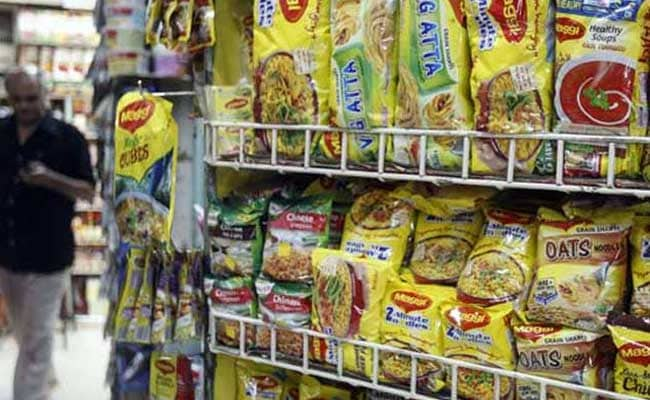
The reports state that lead levels for all samples are within permissible limits. (File Photo)
New Delhi:
FMCG major Nestle today said its popular Maggi has cleared tests conducted by Central Food Technological Research Institute (CFTRI) under the directive of Supreme Court, reiterating that its instant noodles brand is safe for consumption.
"CFTRI has submitted analysis reports on Maggi noodles to the Supreme Court. We have been provided with a copy of the reports. We are happy that all 29 samples tested by CFTRI are clear," Nestle India said in a statement.
The reports state that lead levels for all samples are within permissible limits, it added.
"All 29 samples of Maggi Noodles, (the initial 13 and subsequent 16 samples), were collected by the relevant authorities following due process and then directly submitted to CFTRI," Nestle India said.
The second batch of 16 samples were tested not only for lead and taste enhacer MSG, but also for other safety parameters like metal contaminants, crop contaminants, toxic substances that are applicable to instant noodles as a proprietary food.
"Every single sample was found compliant," the company said.
The Supreme Court on December 16 last year, ordered testing of samples of Maggi noodles in Mysore laboratory after the National Consumer Disputes Redressal Commission (NCDRC) had directed that it be done in Chennai.
The Supreme Court had passed the December order after noting that both the Centre and Nestle India had agreed that Mysore was well equipped with all tests and being a referral notified laboratory, and sample should be sent there.
"We strongly re-iterate that Maggi Noodles has always been safe for consumption as demonstrated by tests carried out in independent accredited laboratories," it said, adding the tests included several other national food authorities including the USA, UK, Singapore and Australia, among others.
Nestle India said CFTRI has clarified that glutamic acid can be due to presence of ingredients like tomatoes, cheese, hydrolyzed plant protein, hydrolyzed vegetable protein. It has further stated that there are no analytical methods to distinguish between naturally present glutamic acid and additive MSG.
Nestle India further said the CFTRI has clarified that the additive MSG is allowed to be added to selected food commodities (seasoning for Noodles is one of them) under Good Manufacturing Practices basis proper label declarations as per 'Food Safety and Standards Regulations, 2011'.
"We wish to emphasise that health and safety of our consumers is our highest priority and we never compromise on the safety, compliance or quality of our products or services," the company added.
"CFTRI has submitted analysis reports on Maggi noodles to the Supreme Court. We have been provided with a copy of the reports. We are happy that all 29 samples tested by CFTRI are clear," Nestle India said in a statement.
The reports state that lead levels for all samples are within permissible limits, it added.
"All 29 samples of Maggi Noodles, (the initial 13 and subsequent 16 samples), were collected by the relevant authorities following due process and then directly submitted to CFTRI," Nestle India said.
The second batch of 16 samples were tested not only for lead and taste enhacer MSG, but also for other safety parameters like metal contaminants, crop contaminants, toxic substances that are applicable to instant noodles as a proprietary food.
"Every single sample was found compliant," the company said.
The Supreme Court on December 16 last year, ordered testing of samples of Maggi noodles in Mysore laboratory after the National Consumer Disputes Redressal Commission (NCDRC) had directed that it be done in Chennai.
The Supreme Court had passed the December order after noting that both the Centre and Nestle India had agreed that Mysore was well equipped with all tests and being a referral notified laboratory, and sample should be sent there.
"We strongly re-iterate that Maggi Noodles has always been safe for consumption as demonstrated by tests carried out in independent accredited laboratories," it said, adding the tests included several other national food authorities including the USA, UK, Singapore and Australia, among others.
Nestle India said CFTRI has clarified that glutamic acid can be due to presence of ingredients like tomatoes, cheese, hydrolyzed plant protein, hydrolyzed vegetable protein. It has further stated that there are no analytical methods to distinguish between naturally present glutamic acid and additive MSG.
Nestle India further said the CFTRI has clarified that the additive MSG is allowed to be added to selected food commodities (seasoning for Noodles is one of them) under Good Manufacturing Practices basis proper label declarations as per 'Food Safety and Standards Regulations, 2011'.
"We wish to emphasise that health and safety of our consumers is our highest priority and we never compromise on the safety, compliance or quality of our products or services," the company added.
Track Latest News Live on NDTV.com and get news updates from India and around the world

